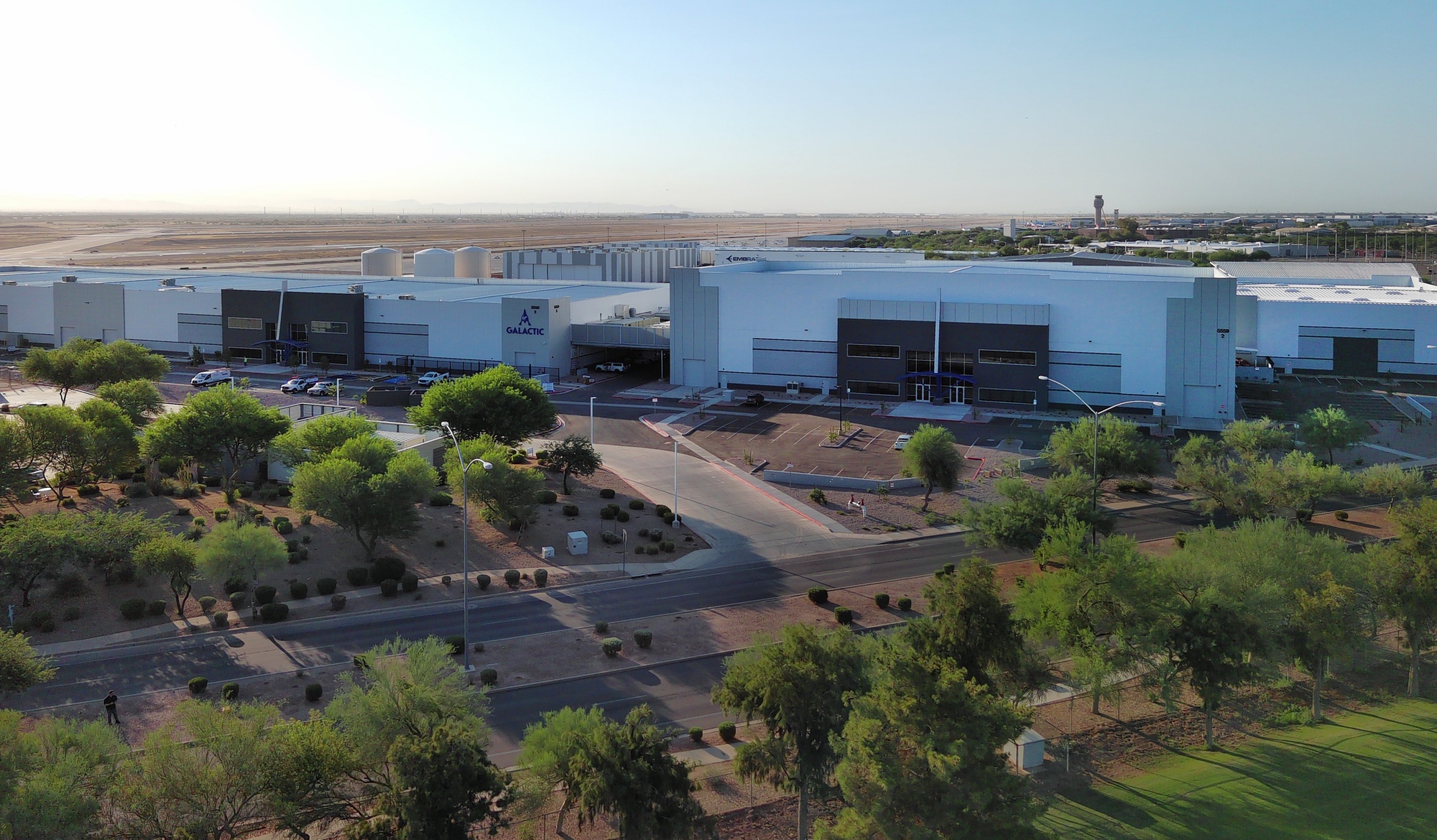Products You May Like
LOGAN, Utah — Virgin Galactic is making the case to the financial community that its new line of suborbital spaceplanes can boost the company towards profitability.
The company used an Aug. 7 earnings call less to discuss the company’s second quarter financial results than to lay out its financial models for how the new Delta-class vehicles, currently scheduled to enter commercial service in 2026, will dramatically alter the company’s bottom line.
“There are lots of opinions about Virgin Galactic’s business model shared on various social channels and platforms. We find many of those opinions are missing key pieces of information,” said Michael Colglazier, chief executive of Virgin Galactic, on the call.
With a video and presentation, he and Doug Ahrens, chief financial officer, outlined the economics of flying multiple Delta-class vehicles, starting at Spaceport America in New Mexico. “After an initial ramp-up period following the launch of our first two Delta-class spaceships, we expect to have capacity to deliver approximately 125 spaceflights per year,” Ahrens said.
With each vehicle carrying six customers, the company projects flying 750 people a year at an average ticket price of $600,000, resulting in annual revenue of $450 million. After accounting for the costs of the flights and other company expenses, Virgin Galactic estimates it can generate adjusted earnings before interest, taxes, depreciation and amortization of $95 million to $110 million a year.
In an “expanded fleet” model, with four spaceships and two mothership aircraft at the spaceport, Virgin Galactic estimates it can perform 275 flights a year, generating $990 million in revenue. That would result, the company estimates, in adjusted EBITDA of $450 million to $500 million a year.
“A business model of that magnitude of profit growth is extraordinary,” Ahrens argued. “It’s that profit potential combined with the tremendous experience of human spaceflight we are delivering that motivates all of us at Virgin Galactic every day.”
Virgin Galactic also examined adding a second spaceport, which its video suggested could be located in Europe or the Middle East. With an additional four spaceplanes and two motherships at that facility, the company projects annual revenues of $1.98 billion and adjusted EBITDA of $1 billion to $1.1 billion.
Those financial models rest on several assumptions. One is that there will be sufficient demand to fly hundreds or thousands of people a year at that price. The company said its own research, coupled with studies by Credit Suisse and Jeffries Global Research, estimated a total addressable market of 300,000 people worldwide, growing at 8% annually. The company currently has approximately 700 customers today.
Ahrens noted on the call that estimate comes the total population of people with a net worth of at least $10 million, followed by a “cascading filter” that examines those willing to spend a large fraction of their net worth on experiences and interest in “experiential travel” in general and spaceflight more specifically.
The model also assumes that Virgin Galactic will be able to build and operate the Delta-class vehicles at those projected costs. The company is just now beginning the shift from designing the Delta-class spaceplanes — similar in appearance to the company’s existing VSS Unity but able to carry more people and fly more frequently — to manufacturing.
“In the next month, our teams will begin to pivot from a primary focus on design completion to primary focus on the build and test phases of our production spaceships,” Colglazier said. The company is working with Bell Textron and Qarbon Aerospace, which will build key sections of the vehicles.
Virgin Galactic will perform final assembly of the vehicles at a new facility in Mesa, Arizona, near Phoenix. The company took over the two buildings there in July and is outfitting them for assembly and testing work.
Colglazier said Virgin expects to receive the first components from its suppliers in the first half of 2025 for assembly there, with rollout and testing of the first vehicle in the second half of the year. “Our Delta spaceship program remains on track to deliver ships into commercial service in 2026,” he said, but did not elaborate on when in the year those flights would begin and how quickly it will ramp up to the flight rates used in the model.
He added it would be several years before the company started flights at a second spaceport. “I think that’s a four- to five-year effort to bring a new spaceport online,” he said, citing development of the spaceport itself as well as necessary regulatory approvals. “I think ’25 is the window when you would see us probably wanting to talk about something there.”
Virgin Galactic recorded $4.2 million in revenue in the second quarter, linked primarily to the final flight of VSS Unity in June. The company has ad adjusted EBITDA loss of $79 million in the quarter and negative free cash flow of $114 million. It ended the quarter with $821 million of cash and equivalents on hand.
